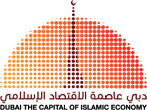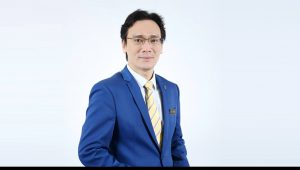By William Mullally, CPI Financial
The Dubai Islamic Economy Development Centre (DIEDC) today signed a memorandum of understanding (MoU) with the Astana International Financial Centre (AIFC), to exchange expertise in the field of Islamic economy and finance, Halal industry and human capital development.
His Excellency Sultan bin Saeed Al Mansouri, Minister of Economy and Chairman of DIEDC, and His Excellency Kairat Kelimbetov, Governor of AIFC, signed the MoU on behalf of the two government entities.
His Excellency Sultan bin Saeed Al Mansouri said, “The agreement marks the start of a brand-new phase of cooperation between the UAE and Kazakhstan in the field of Islamic economy that is increasingly attracting countries aiming to achieve financial stability and sustainable growth in vital sectors.”
Under the remit of the MoU, Kazakhstan will benefit from the rich experience of Dubai and the UAE in developing an integrated Islamic economy strategy and implementing Shari’ah-compliant financial mechanisms. Both parties will exchange knowledge and information relating to Islamic economy and provide documentation as part of shared know-how on Islamic finance transactions.
Furthermore, DIEDC will assist in setting up the Kazakh Halal Accreditation Body in collaboration with its strategic partners. The organisation will join the International Halal Accreditation Forum, established in May 2016 with the support of His Highness Sheikh Mohammed bin Rashid Al Maktoum, Vice President and Prime Minister of the UAE and Ruler of Dubai. Led by DIEDC and the Emirates Authority for standardisation and Metrology (ESMA), the Forum aims to boost the status of Dubai as the global capital of Islamic economy.
Explaining the purpose of the MoU, Al Mansouri said, “Dubai is keen to share our experience in supporting economic diversity through adopting the ethics and principles of Islamic economy with other countries, whether in the financial or the Halal industries sector. In turn, we aim to benefit from Kazakhstan’s expertise that has brought about key developmental outcomes.”
He added, “We hope this MoU will mark a new beginning for trade, industrial and financial ties between our two countries – especially with the growing interest in diversifying the sources of income in Kazakhstan and the country’s drive to create a more stable and sustainable economy. The MoU demonstrates our commitment to supporting AIFC in encouraging investors to adopt responsible investment mechanisms that mitigate financial risks and boost social development.”
Speaking on Islamic finance, Al Mansouri said: “The sector has the potential to achieve tangible growth in line with global efforts to realise the development goals of the third millennium, and the keenness of Islamic and non-Islamic economy stakeholders to contribute to eradicating poverty, unemployment and diseases. As part of this priority, we need to observe the principles of solidarity, justice and equality in the distribution of assets. Furthermore, public and private entities alike must enhance governance practises and adopt corporate social responsibility.”
In this context, Al Mansouri added, “The membership reflects Kazakhstan’s dedication to implementing the Halal ecosystem and certification. The country’s endeavour complements our efforts to promote Halal industries and increase standards across the board towards facilitating trade exchange and achieving food security at a global level.”
In closing, he noted the key role AIFC plays in elevating Kazakhstan’s status on the map of developing countries and in creating opportunities for developmental projects in vital industries, such as Islamic finance.
For his part, His Excellency Kairat Kelimbetov reiterated that Islamic finance, and the wider Islamic economy, is increasingly becoming an important contributor to the global economy. He said: “The UAE and Dubai have become role models in the implementation of legislative and regulatory frameworks for Shari’ah-compliant industries. AIFC attaches great importance to the principles of Islamic finance that have proven efficient in protecting local economies in turbulent times.”
He added, “This MoU is in line with the Kazakhstan 2050 Strategy and the steps we have taken to enhance our country’s economic diversification efforts towards building a sustainable, competitive and smart economy and to attract investments that will shape Kazakhstan into one of the 30 most developed nations in the world. Our ambition is to become a pioneer in commerce, industrial development, finance, education, health, tourism and food production – sectors that can comply with the rules and ethics of Islamic economy, and thus have the potential to achieve prosperity.”
Earlier, His Excellency Kairat Kelimbetov led a high-level AIFC delegation that visited DIEDC and met with Abdulla Mohammed Al Awar, CEO of DIEDC. The delegation attended a presentation on the Centre’s plans to unify the criteria for Shari’ah-compliant financial, commercial and industrial transactions, and develop an international system of overseeing Halal industries and Islamic finance to realise the anticipated momentum in the two sectors.



